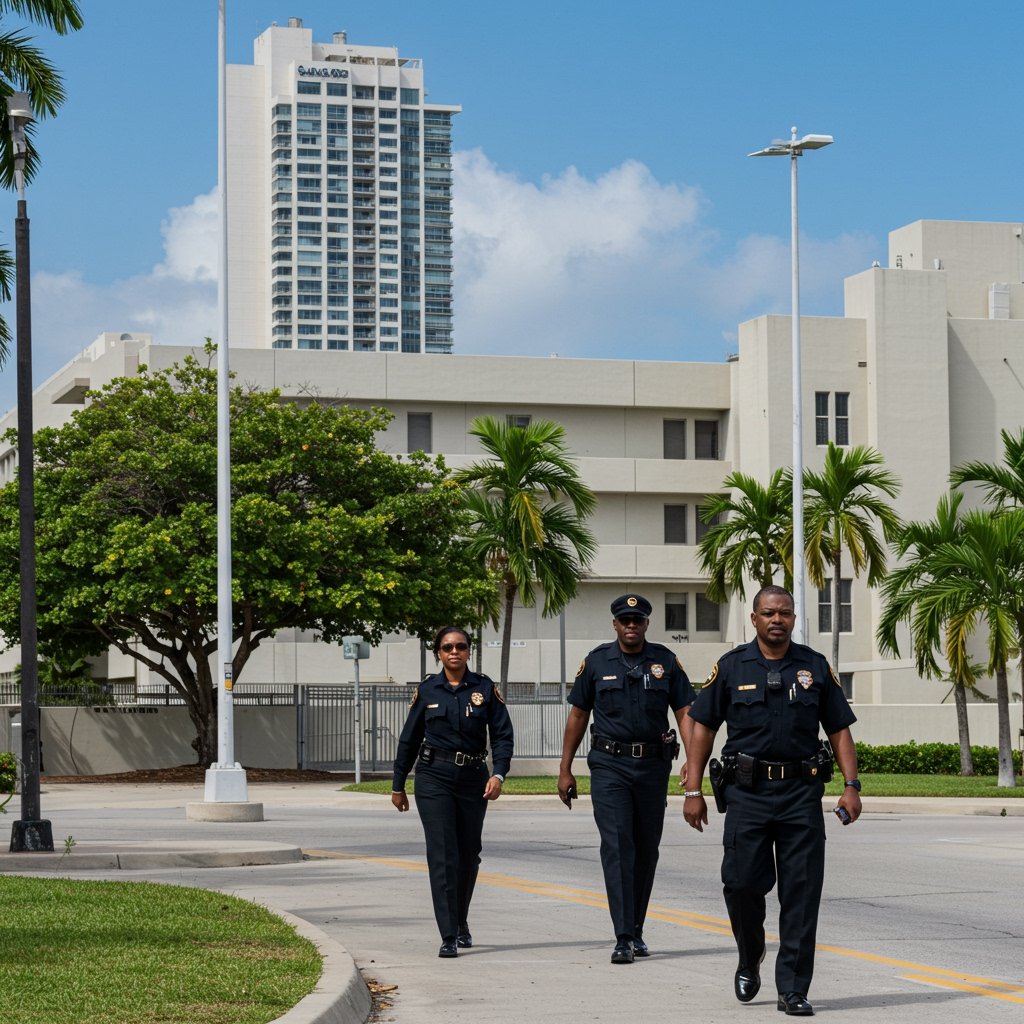MIAMI, FL – In a significant and contentious decision, the Miami City Commission voted on Tuesday, June 17, 2025, to approve an agreement allowing select city police officers to perform limited immigration enforcement duties in coordination with U.S. Immigration and Customs Enforcement (ICE). The 3-2 vote followed hours of impassioned public debate and marks a shift in the city’s approach to immigration enforcement, aligning it more closely with federal efforts under the controversial 287(g) program.
Understanding the 287(g) Program
The agreement greenlit by the Commission is rooted in the federal 287(g) program. This initiative permits state and local law enforcement agencies to enter into a partnership with ICE. Under such agreements, designated officers, after receiving specialized training and certification from ICE, are authorized to perform certain immigration enforcement functions. These duties typically occur within local jails or, less commonly, during routine law enforcement activities in the community, always under the supervision and guidance of ICE personnel. Proponents argue the program enhances public safety by allowing local authorities to identify and detain individuals who have committed crimes and are also in the country illegally.
The Commission’s Deliberation and Vote
The vote unfolded after extensive discussion and public testimony. Commissioners Joe Carollo, Miguel Ángel Gabela, and Ralph “Rafael” Rosado voted in favor of adopting the agreement, forming the majority that carried the measure. The dissenting votes came from Chairwoman Christine King and Commissioner Damián Pardo, who voiced strong opposition to the partnership.
Arguments for Adoption and External Influence
Supporters of the agreement, or those whose votes were influenced by legal interpretations, pointed to the potential legal ramifications for the city if it did not comply with state-level mandates regarding immigration enforcement cooperation. City Attorney George Wysong and Miami Police Chief Manuel Morales advised the commissioners that the state’s interpretation of relevant laws could leave cities vulnerable to funding cuts or legal action if they were perceived as not cooperating sufficiently with federal immigration authorities. This potential exposure significantly influenced the votes of some commissioners who sought to protect the city from state-imposed penalties.
Voices of Opposition and Community Concerns
The decision was met with significant opposition from residents, community advocates, and the dissenting commissioners. Hours of emotional public comment preceded the vote, with many urging the commissioners to reject or at least defer the agreement. Opponents raised concerns that the partnership could severely damage community trust, particularly in a city with a large foreign-born population. They argued that allowing local police to act as immigration agents could instill fear among immigrant residents, making them less likely to report crimes or cooperate with law enforcement on other matters.
Commissioners King and Pardo echoed these concerns, emphasizing their belief that immigration enforcement is fundamentally the responsibility of the county sheriff and federal authorities, not municipal police departments. They argued that diverting local resources to immigration duties could detract from addressing city-specific crime issues and that the program could have negative economic fallout by discouraging tourism or business from immigrant communities.
Advocates also warned of potential legal challenges to the agreement itself, citing concerns about civil rights implications and the scope of authority granted to local officers. They suggested that the city was unnecessarily wading into complex federal territory with potentially adverse consequences for its residents and reputation.
Legal Challenges Loom
The legal landscape surrounding municipal involvement in immigration enforcement remains unsettled in Florida. The city of South Miami has already filed a lawsuit challenging whether state law actually mandates that municipalities enter into agreements like the 287(g) program. During the Miami Commission’s debate, Commissioner Pardo had proposed postponing the vote specifically until the South Miami case was resolved, arguing that its outcome could provide critical legal clarity on whether the city was indeed required to enter the agreement. The majority, however, chose to proceed with the vote before the court could issue a ruling.
Looking Ahead
The Miami City Commission’s decision to implement the 287(g) program with its police department is a pivotal moment for the city. While proponents cite potential compliance with state directives and enhanced public safety cooperation with federal authorities, opponents foresee damaged community relations and potential legal battles. The implementation of the program and its effects on the city’s diverse population and trust in law enforcement will be closely watched, particularly as the South Miami lawsuit navigates the courts, potentially influencing the future of such partnerships across the state.





